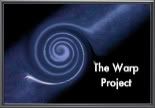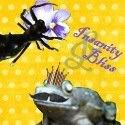TOS: Episode 22: The Return of the Archons
"Oh! Sulu ain't no dying!"
So begins our Sabrina 9-years old reaction to Episode 22 of The Original Series. That's right. Sulu, the beloved overly dramatic foil to Kirk's overacting (that is, the one that makes us think Kirk really is a calm, naturalistic actor), has been stung by an unknown scepter wielded by a Death Gown wearing planet dweller. Sulu's sting puts him into a euphoric state of total devotion to an unseen man-power from a planet in which everyone dresses like U.S. Southern Gentlemen.
That's right, again here we are traveling through space with all the potential power of a sci-fi universe, and yet we discover that life on planets in far away places look remarkably like life on earth did at the some time in 1800's North America. It's a miracle that. Earth really is a model of life in any other part of the many many places the Enterprise could ever encounter.
Episode Summary
The Enterprise crew travels to a distant planet in search of any possible offspring or survivors of the USS Archon, which disappeared at this planet 100 years before. Two beamdown to the planet to explore it, with only Sulu beaming back from it, but in a strangely euphoric and unexplainable state. Though the doctor monitors him, his behavior has no apparent explanation or solution.
Kirk and another landing party beam down only to discover a 19th-century Earth appearing planet with individuals easily falling in line with acting happy-happy continually, unable, apparently, to express themselves creatively or uniquely, but all, seemingly getting along. Once a day known as "The Red Hour" all the inhabitants of the planet become violent. The landing crew discover that the inhabitants of the planet are under the control of some unseen force that loses its ability to subvert their primal instincts only during this one time of day.
The landing party are eventually captured, but are given shelter by a planet resident that appears resistant to the behaviors of the collectively controlled inhabitants. In dialoguing with the resistant resident Kirk and Spock begin to gather information needed to explain how such control is exerted over the inhabitants of the planet, and what they can do to avoid getting "absorbed" into the control state themselves. In the meantime, on board the Enterprise the remaining crew struggle to keep their ship in orbit as it too seems subject to some unexplainable, unseen force, while Sulu continues to behave euphorically, while also seemingly under the threat of the Red Hour violence himself.
Episode Tidbits
We discover two things with this episode. Unseen man-powers that rule an entire planet of Southern-looking gentlemen bear a remarkable resemblance to the Wizard from Oz. Not in the sense of having the same giant green floating face, but in the sense of speaking with a disembodied voice, projected to a screen from a source unknown, all the way being controlled by hidden machines. The costuming of the U.S. Southern style appear remarkably similar to the residents of Oz as well.
Further, Star Trek turns out to be an early television promotion source for pro-democracy. The Next Generation has been commonly touted as an obvious promoter of modern liberal interest of democratic society, at least in terms of theoretical discourse (how things are talked about and made to appear in the space traveling future, as though this implies that democracy is the natural development of an advanced warp powered society). It turns out, however, that The Original Series serves as an early model too, at least occasionally, of a propoganda machine for democratic ideals. Democracy here is primarily asserted through the vague, contentless ideal of freedom. That is, as discussed here, freedom is presented as something taken for granted, assumed to be simply understood as valuable even without being explained. In this way, it is not made explicitly clear what would count as freedom to Star Fleet. Interestingly, while this episode certainly touts such ideals, democratic interests are mixed, strangely, with prioritization of the human soul, its inhabiting the body, and its expressing itself creatively. In this way, the idea of freedom that this episode takes for granted seems to be understood as the soul's expression of its potential through an expansion of the limits of the body via creative activity. The episode regards humanoid bodies as unhuman when they operate without this creative expression of the soul. In other words, even if one has been born human, according to Kirk, if one doesn't behave human via this creative "free" output, one can't be taken to be human at all.
Wonderfully, the episode completes itself with Kirk touting the metaphysical idea of the soul discussed here, while Spock chastizes Kirk for having such metaphysical interests, stating instead that Spock prefers the concrete. Kirk responds, "Ah Spock, you'd make a wonderful computer." Spock raises an eye brow and responds, "You are most kind, Kirk."
O dear Spock, I love you.
Incidentally, this is also the first in Star Trek history that we hear of the Prime Directive, but it is mentioned as though it has always been obviously true for the Enterprise.
The Entire Star Trek Universe at High Speed
Subscribe to:
Post Comments (Atom)







No comments:
Post a Comment